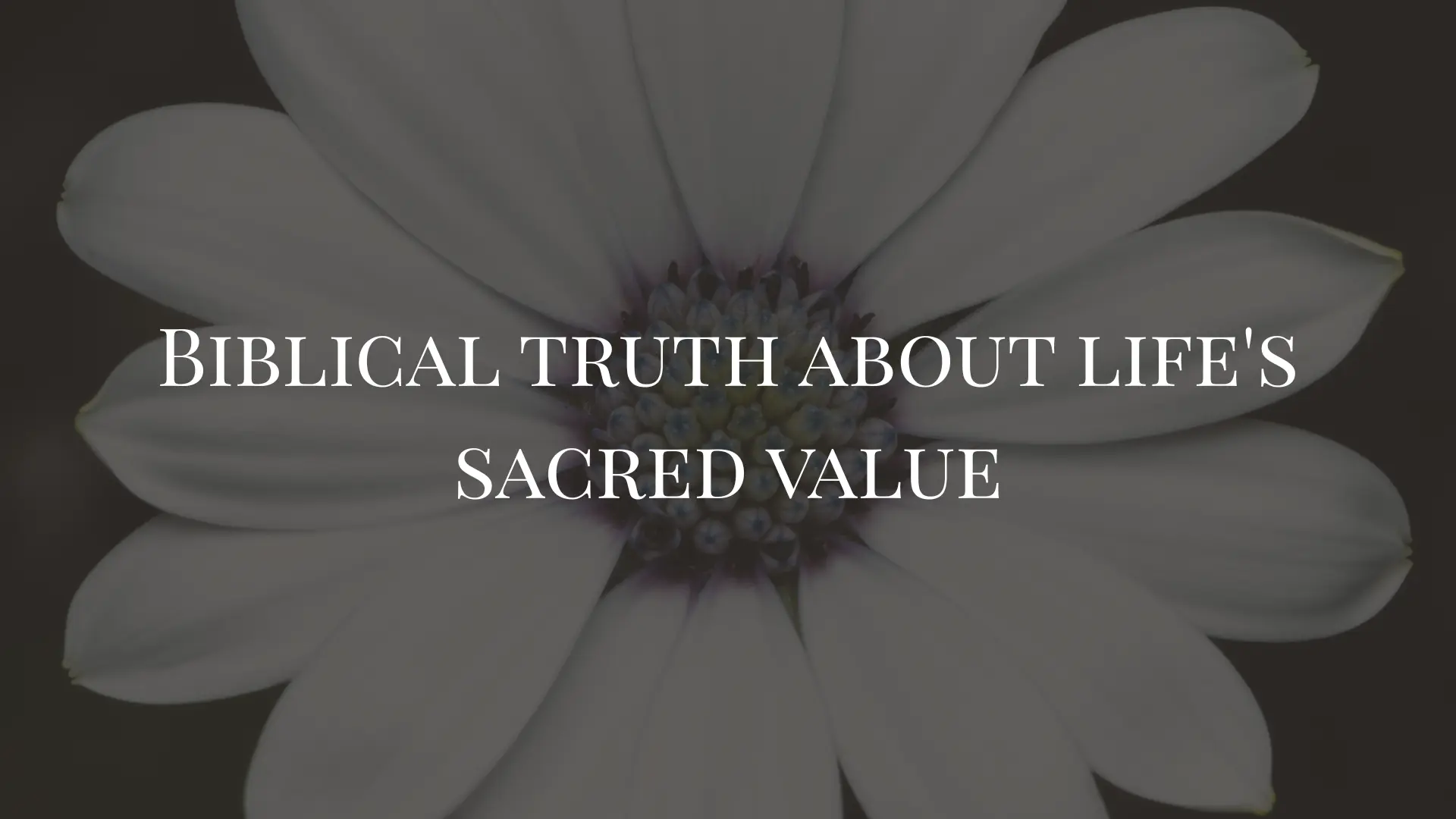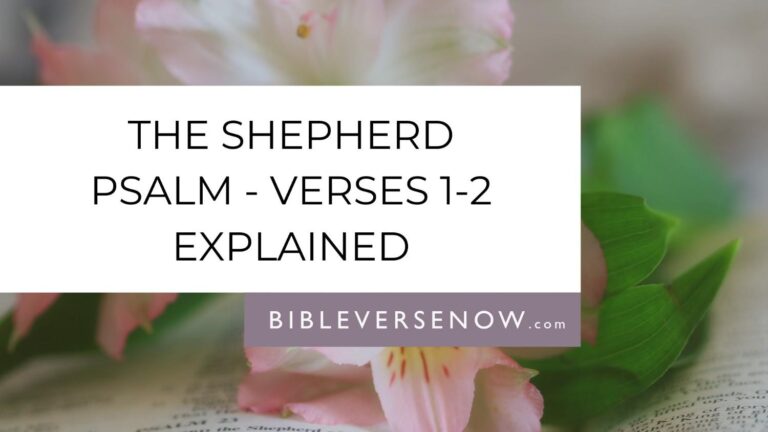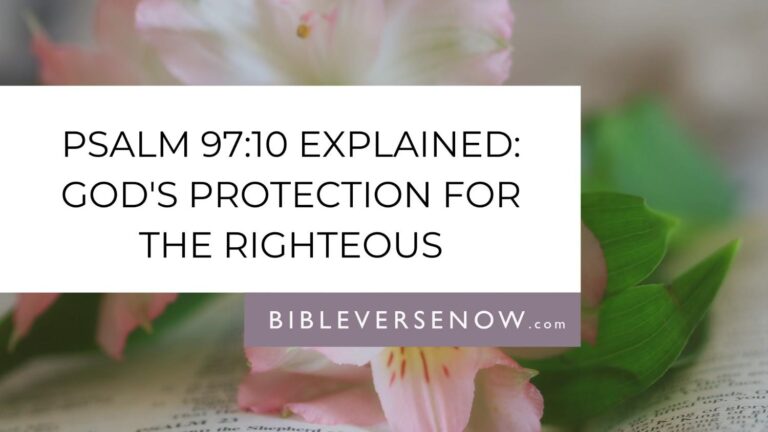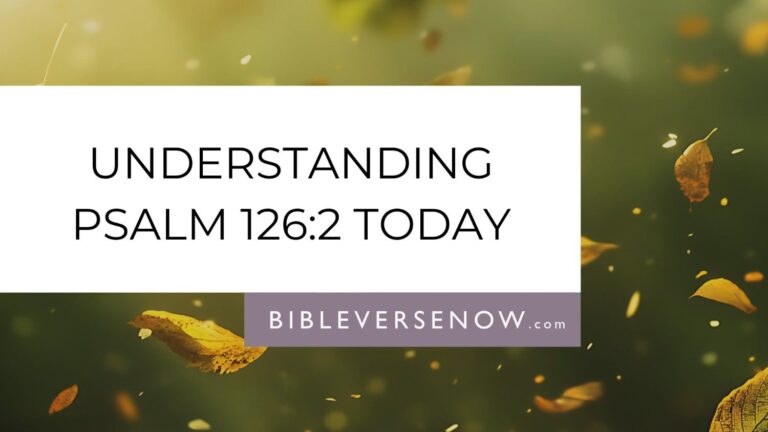Life feels fragile right now, doesn’t it? Whether you’re grappling with questions about when life begins, wrestling with end-of-life decisions for a loved one, or simply seeking to understand God’s heart for human dignity, you’re not alone in these weighty moments. The sanctity of life isn’t just a theological concept—it’s the bedrock of how God sees every person He has created. These Bible verses about sanctity of life will anchor your heart in eternal truth and remind you that every breath, every heartbeat, and every moment of existence is precious to our Creator.
What Does Sanctity of Life Mean in Scripture
The sanctity of life is woven throughout Scripture like a golden thread, revealing God’s deep love for humanity from conception to natural death. When we speak of life’s sanctity, we’re acknowledging that human life carries inherent worth because we are created in God’s image.
Genesis 1:27 declares: “So God created mankind in his own image, in the image of God he created them; male and female he created them.” This foundational truth establishes that every human being reflects something of God’s own nature—making each life infinitely valuable.
The Hebrew word for “image” (tselem) suggests a representative figure, like a statue representing a king. You and every person around you carry the divine stamp of the Creator Himself. This isn’t earned through achievements or lost through failures; it’s an unshakeable reality from the moment life begins.
Psalm 139:13-14 beautifully captures God’s intimate involvement in creating life: “For you created my inmost being; you knit me together in my mother’s womb. I praise you because I am fearfully and wonderfully made; your works are wonderful, I know that full well.” The phrase “fearfully and wonderfully made” uses Hebrew words that convey being made with reverent care and distinguished excellence.
Bible Verses About Life Beginning in the Womb
When does life become sacred to God? Scripture consistently points to conception and formation in the womb as the beginning of a person’s story with their Creator.
Jeremiah 1:5 records God’s words to the prophet: “Before I formed you in the womb I knew you, before you were born I set you apart; I appointed you as a prophet to the nations.” This verse reveals that God’s knowledge and calling of Jeremiah preceded even his biological formation—showing that in God’s economy, personhood begins before birth.
Luke 1:41 provides a New Testament glimpse of pre-born life: “When Elizabeth heard Mary’s greeting, the baby leaped in her womb, and Elizabeth was filled with the Holy Spirit.” The Greek word “brephos” used for John the Baptist in the womb is the same word used for born babies throughout the New Testament, indicating no distinction in personhood between pre-born and born children.
Job 31:15 offers another powerful testimony: “Did not he who made me in the womb make them? Did not the same one form us both within our mothers?” Job recognizes the common humanity shared by all people, regardless of social status, because the same God forms every person in the womb.
Psalm 22:10 shows God’s care from the earliest moments: “From birth I was cast on you; from my mother’s womb you have been my God.” This psalm, which prophetically points to Christ’s crucifixion, acknowledges divine relationship beginning in the womb.
God’s Heart for the Vulnerable and Defenseless
Throughout Scripture, God consistently shows special concern for those who cannot defend themselves. This principle deeply informs how we understand the sanctity of life, particularly for the most vulnerable.
Psalm 82:3-4 commands: “Defend the weak and the fatherless; uphold the cause of the poor and the oppressed. Rescue the weak and the needy; deliver them from the hand of the wicked.” God’s heart consistently beats for those without power or voice.
Proverbs 31:8 instructs: “Speak up for those who cannot speak for themselves, for the rights of all who are destitute.” This verse has long been applied to defending pre-born children who have no voice in decisions affecting their lives.
Isaiah 1:17 echoes this theme: “Learn to do right; seek justice. Defend the oppressed. Take up the cause of the fatherless; plead the case of the widow.” God’s justice always bends toward protecting the powerless.
Matthew 18:6 records Jesus’ strong words about protecting children: “If anyone causes one of these little ones—those who believe in me—to stumble, it would be better for them to have a large millstone hung around their neck and to be drowned in the depths of the sea.” While specifically addressing believers, this verse reveals Jesus’ fierce protection of the innocent.
Bible Verses About Every Life Having Purpose
Scripture teaches that every life—regardless of circumstances, abilities, or duration—has divine purpose woven into its existence.
Romans 8:28 provides foundational hope: “And we know that in all things God works for the good of those who love him, who have been called according to his purpose.” Even in difficult circumstances, God can weave purpose and meaning into every life story.
Ephesians 2:10 reveals God’s intentional design: “For we are God’s handiwork, created in Christ Jesus to do good works, which God prepared in advance for us to do.” The Greek word for “handiwork” (poiema) is where we get our word “poem”—you are God’s masterpiece, His work of art with predetermined purpose.
1 Corinthians 12:22 addresses those who might seem less valuable: “On the contrary, those parts of the body that seem to be weaker are indispensable.” Paul uses the metaphor of Christ’s body to show that even those who appear weakest serve essential purposes.
2 Corinthians 12:9 records God’s words to Paul: “My grace is sufficient for you, for my power is made perfect in weakness.” This principle suggests that lives marked by physical or mental challenges can uniquely display God’s strength.
Scripture on Life and Death Decisions
When facing difficult decisions about life and death, Scripture provides wisdom grounded in God’s sovereignty over human existence.
Deuteronomy 32:39 declares God’s ultimate authority: “See now that I myself am he! There is no god besides me. I put to death and I bring to life, I have wounded and I will heal, and no one can deliver out of my hand.” This verse establishes that life and death ultimately rest in God’s hands, not ours.
Ecclesiastes 3:1-2 reminds us of God’s timing: “There is a time for everything, and a season for every activity under the heavens: a time to be born and a time to die, a time to plant and a time to uproot.” While often quoted at funerals, this passage acknowledges that God has appointed times for life events.
Job 14:5 speaks to God’s predetermined plans: “A person’s days are determined; you have decreed the number of his months and have set limits he cannot exceed.” This doesn’t negate medical care but acknowledges God’s ultimate sovereignty.
Psalm 31:15 expresses trust in God’s timing: “My times are in your hands; deliver me from the hands of my enemies, from those who pursue me.” David’s confidence in God’s control over his lifespan offers comfort in uncertain times.
Old Testament Verses on Human Dignity
The Old Testament consistently portrays human life as uniquely valuable among all creation.
Genesis 9:6 establishes the principle of life’s sanctity: “Whoever sheds human blood, by humans shall their blood be shed; for in the image of God has God made mankind.” This post-flood declaration to Noah connects the prohibition against murder directly to humanity’s creation in God’s image.
Leviticus 24:17 reinforces this principle: “Anyone who takes the life of a human being is to be put to death.” The severity of this consequence reflects the gravity of destroying what God has created in His image.
Numbers 35:33 warns about defiling the land: “Do not pollute the land where you are. Bloodshed pollutes the land, and atonement cannot be made for the land on which blood has been shed, except by the blood of the one who shed it.” This verse suggests that taking innocent life has spiritual consequences beyond the immediate victim.
1 Samuel 2:6 acknowledges God as life’s source: “The Lord brings death and makes alive; he brings down to the grave and raises up.” Hannah’s song recognizes God’s authority over life and death.
New Testament Teachings on Life’s Value
Jesus and the apostles consistently demonstrated and taught the infinite worth of every human being.
John 10:10 records Jesus’ mission statement: “The thief comes only to steal and kill and destroy; I have come that they may have life, and have it to the full.” Christ came not just to preserve life but to give abundant, eternal life.
Matthew 10:29-31 illustrates God’s intimate care: “Are not two sparrows sold for a penny? Yet not one of them will fall to the ground outside your Father’s care. And even the very hairs of your head are all numbered. So don’t be afraid; you are worth more than many sparrows.” If God cares for small birds, how much more does He value human life?
1 John 3:16 defines love through sacrifice: “This is how we know what love is: Jesus Christ laid down his life for us. And we ought to lay down our lives for our brothers and sisters.” The ultimate expression of love is giving up one’s life for another.
Galatians 1:15 shows God’s calling from the womb: “But when God, who set me apart from my mother’s womb and called me by his grace, was pleased…” Paul, like Jeremiah, recognizes God’s calling beginning in the womb.
Practical Ways to Honor Life’s Sanctity
Understanding Scripture’s teaching about life’s sanctity calls us to practical responses in our daily lives.
Supporting expectant mothers facing difficult circumstances honors the sanctity of life. Isaiah 58:10 encourages: “If you spend yourselves in behalf of the hungry and satisfy the needs of the oppressed, then your light will rise in the darkness, and your night will become like the noonday.”
Caring for elderly family members reflects our commitment to life’s inherent dignity. Leviticus 19:32 commands: “Stand up in the presence of the aged, show respect for the elderly and revere your God. I am the Lord.”
Advocating for those with disabilities demonstrates God’s heart for the vulnerable. 1 Corinthians 1:27 reminds us: “But God chose the foolish things of the world to shame the wise; God chose the weak things of the world to shame the strong.”
Providing comfort and care for the dying honors their dignity until natural death. Psalm 23:4 offers hope: “Even though I walk through the darkest valley, I will fear no evil, for you are with me; your rod and your staff, they comfort me.”
When Life Feels Overwhelming: Finding Hope
Sometimes the weight of life’s struggles can make existence feel burdensome. In these moments, Scripture offers hope and perspective.
Isaiah 43:4 declares your worth: “Since you are precious and honored in my sight, and because I love you, I will give people in exchange for you, nations in exchange for your life.” Your life has immeasurable value to God.
Jeremiah 29:11 promises divine plans: “For I know the plans I have for you,” declares the Lord, “plans to prosper you and not to harm you, to give you hope and a future.” Even when you can’t see the purpose, God has good plans for your life.
Romans 5:8 reminds us of demonstrated love: “But God demonstrates his own love for us in this: While we were still sinners, Christ died for us.” Your worth isn’t based on performance but on God’s unchanging love.
2 Corinthians 4:17 provides eternal perspective: “For our light and momentary troubles are achieving for us an eternal glory that far outweighs them all.” Present struggles don’t diminish life’s ultimate value.
Prayer for Honoring Life’s Sanctity
Heavenly Father, thank You for creating every person in Your image and declaring each life precious in Your sight. Help us see every human being through Your eyes—from the smallest child in the womb to the elderly person drawing their final breath. Give us wisdom to make decisions that honor the sanctity of life You’ve established.
When we encounter difficult situations involving life and death decisions, guide us with Your truth and fill us with Your compassion. Help us speak up for those who cannot speak for themselves and to care for the vulnerable in our communities.
Forgive us when we’ve failed to value life as You do, and strengthen our commitment to protecting and cherishing every person You’ve created. Use us as instruments of Your love and hope in a world that often devalues human dignity.
In Jesus’ name, we pray. Amen.
Living Out Life’s Sacred Value Daily
The sanctity of life isn’t just a theological position—it’s a daily calling that shapes how we interact with every person we encounter. When you understand that each individual carries God’s image, it transforms how you treat the cashier, the difficult neighbor, and even yourself.
1 Peter 2:17 provides a practical framework: “Show proper respect to everyone, love the family of believers, fear God, honor the emperor.” This verse calls us to honor the divine dignity in every person.
Your commitment to life’s sanctity might mean volunteering at a pregnancy center, visiting elderly neighbors, or simply treating each person with the respect their divine image deserves. It means recognizing that every life—regardless of age, ability, or circumstances—has inherent worth that cannot be earned or lost.
As you go forward, let these Bible verses about sanctity of life anchor your heart in God’s unchanging truth: every life matters because every person reflects something of their Creator. In a world that often questions the value of vulnerable lives, may you be a voice of hope, protection, and dignity for all.




